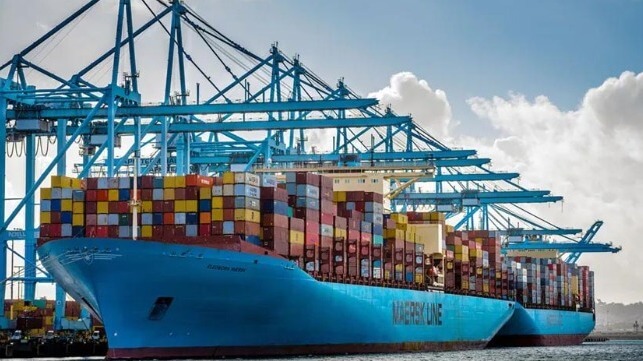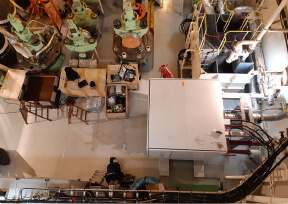Maersk Tests Heat Recovery System to Generate Power on Containership

Shipping giant Maersk is undertaking what may be one of the first retrofits and testing of a heath recovery power system aboard one of its containerships in collaboration with a Swedish technology company Climeon that is developing heat recovery systems for marine and other applications. The demonstration project is one of the techniques the container shipping company is exploring as it seeks to take a leadership role in developing new technologies to improve efficiency and environmental performance for commercial shipping.
Climeon AB announces the successful integration of the commissioned Heat Power System onboard a Maersk container vessel. Maersk will begin evaluating the waste heat recovery technology’s potential for increasing energy efficiency.
“After numerous delays due to Covid-19 restrictions, we are thrilled to begin power production and evaluate the potential onboard Maersk container vessels,” said Fredrik Thoren, Head of Maritime at Climeon. “We are so grateful for the professional support and genuine enthusiasm that the Maersk team have displayed to ensure the success of this collaboration.”
Climeon’s Heat Power System recovers waste heat, in the form of jacket cooling water and surplus steam, from the vessel’s main engine. The recovered heat is utilized to produce electrical power for the vessel’s grid, thereby reducing the required electrical output from the vessel generators. The technology automatically and continuously ensures that the power output is optimized for maximum conversion efficiency via the Climeon Live control system. The software provides daily system information and reports, facilitating proactive monitoring of the system, ensuring maximum up-time.

Heart recovery power system installed aboard the Maersk vessel (Climeon)
The current system installed has the capacity to produce 150kW, but the system is scalable up to 1 MW. Climeon says that in addition to improving the Energy Efficiency Existing Ship Index (EEXI) of the vessel, their system can reduce annual CO2 emissions by up to 3500 tons, equivalent to an annual fuel savings of 1000 tons.
Climeon’s first maritime application was in 2015 aboard the two-year-old LNG-fueled ferry Viking Grace, which sails between Sweden and Finland. The system was retrofitted to the ferry and according to the company, after a successful testing period, the CO2 and fuel savings were higher than expected leading Viking Line to develop the cooperation with Climeon.
Other applications of the heat recovery technology include installation on Virgin Voyages’ new cruise ships built by Fincantieri. The technology is also aboard Havila’s new Norwegian ferry cruise ships, the first of which entered service this week sailing on Norway’s coast. The company hopes that the demonstration project with Maersk will help to expand the use of heat recovery into broader segments of the maritime industry.
